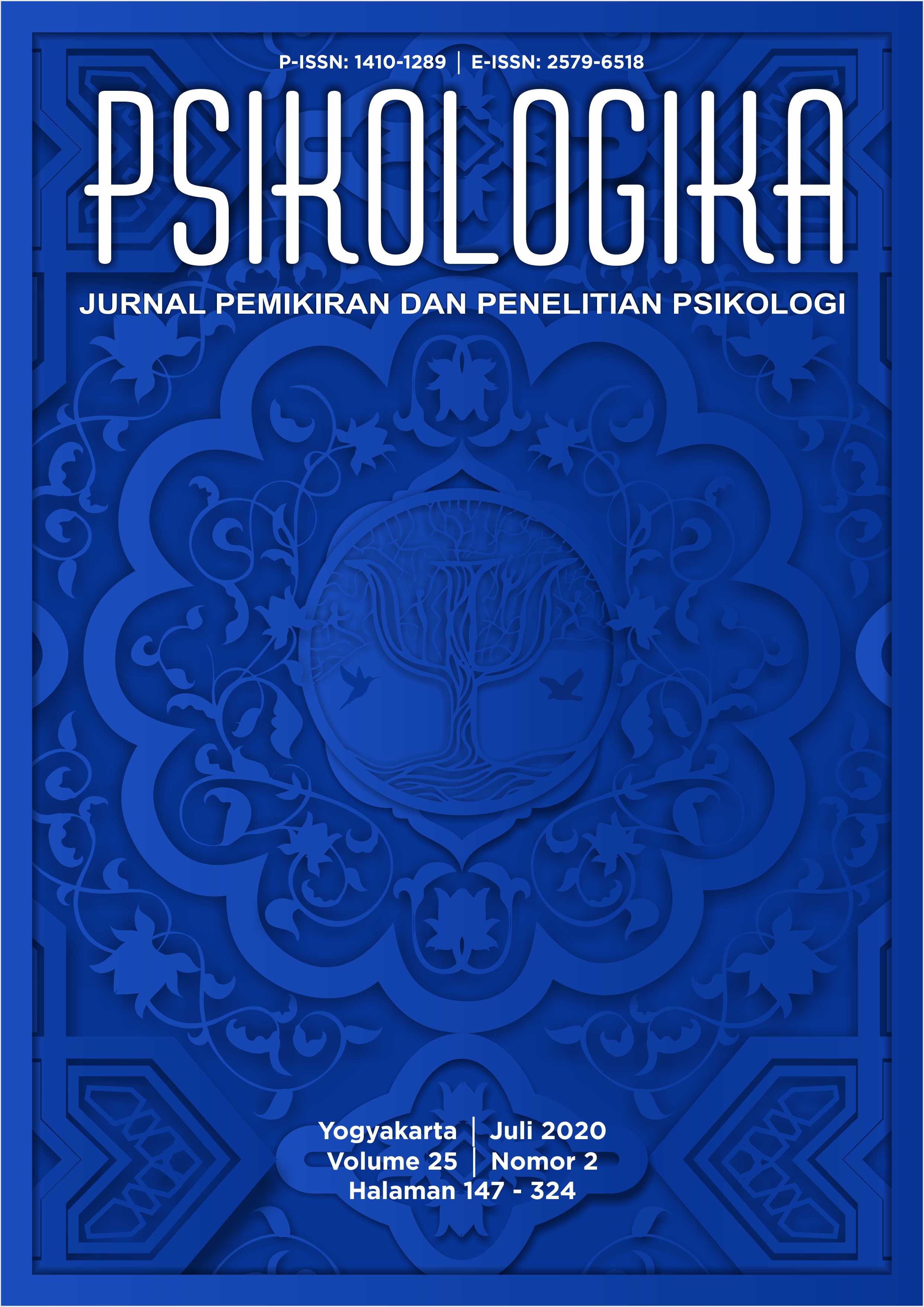Main Article Content
Abstract
Studi ini bertujuan untuk memvalidasi perangkat penilaian efikasi diri yang berkaitan dengan kesehatan kerja yang dikembangkan pada tahap studi pendahuluan. Skala Efikasi Diri untuk Kesehatan Kerja (SEDKK) berlandaskan konsep efikasi diri pada teori kognitif sosial yang mengukur empat faktor yang berpengaruh pada kesehatan setiap individu yang bekerja, seperti: perilaku makan dan minum, tidur, keamanan dan kesehatan kerja, serta kegiatan pemulihan dari stres bekerja. Hasil analisis faktor eksploratori menunjukan bahwa ada empat faktor yang terefleksikan dari butir-butir SEDKK. Validitas konstruk SEDKK dapat dibuktikan dengan korelasi positif antara SEDKK dan skala Efikasi Diri Umum yang sangat signifikan. Pengujian validitas kriteria dapat ditelusuri melalui efek SEDKK terhadap kondisi kesehatan umum, kepuasan akan kesehatan pribadi, keseimbangan kehidupan kerja/KKK (work life balance), perilaku sehat, dan perilaku berisiko. Namun demikian, asumsi mengenai reliabilitas tes berulang (test-retest) pada penelitian ini ditolak. Implikasi dan saran-saran untuk penelitian selanjutnya didiskusikan pada artikel ini.
Kata Kunci: analisis faktor eksploratori, diagnostik, efikasi diri, kesehatan kerja, perilaku hidup sehat
The Development of Self Efficacy Scale for Occupational Health Behavior: An Initial Study
Abstract. This study is an attempt to validate a tool for measuring the self-efficacy for occupational health behavior on the pilot study level. The scale of self-efficacy for occupational health behavior (SEDKK) based on the concept of self-efficacy inside the theory of social cognitive, which integrates itself into four determinants regarding occupational health, such as: dietary behavior, sleeping behavior, occupational safety and health, as well as recovery activities after work. The explorative factor analysis show that there are four occurred dimensions of SEDKK. Construct validity was indicated by the positive correlation between SEDKK and General Self-Efficacy scale. The criterion validity could be tracked by the effects of SEDKK on general health condition, health satisfaction, work life balance, healthy behaviors, and risk behaviors. However, SEDKK could not show any test-retest reliability. The implications and suggestions for further researches are discussed in this article.
Keywords: diagnostic, explorative factor analysis, healthy behavior, occupational health, self-efficacy
Article Details
Authors who publish with this journal agree to the following terms:
- Authors retain copyright and grant the journal right of first publication with the work simultaneously licensed under a Creative Commons Attribution-ShareAlike 4.0 International License that allows others to share the work with an acknowledgment of the work's authorship and initial publication in this journal.
- Authors are able to enter into separate, additional contractual arrangements for the non-exclusive distribution of the journal's published version of the work (e.g., post it to an institutional repository or publish it in a book), with an acknowledgment of its initial publication in this journal.
- Authors are permitted and encouraged to post their work online (e.g., in institutional repositories or on their website) prior to and during the submission process, as it can lead to productive exchanges, as well as earlier and greater citation of published work (See The Effect of Open Access).




